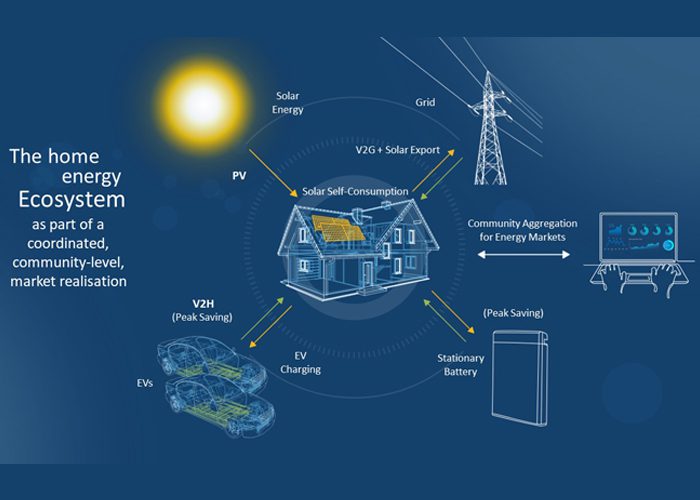AN innovative project exploring the role for bi-directional charging of electric vehicles is being undertaken by a collaborative team as part of the Innovate-UK managed V2X Innovation Programme. Funded by the Net Zero Innovation Portfolio (NZIP) through the UK Department for Business, Energy and Industrial Strategy (BEIS) and led by British smart-tech company SMPnet, the ‘VEhiCle TO eneRgy communitieS’ (VECTORS) project brings together world class partners EDF Energy R&D Centre, Loughborough University, Oxfordshire County Council, Urbanomy UK and dcbel.
Project partners will use their expertise to propose cost-effective alternatives to contribute to the UK’s zero-emission target through the potential offered by Electric Vehicles (EVs). The flexibility of power systems constitutes an emerging area of interest in the power sector and a powerful tool at the disposal of network operators and the creation of innovative technologies to unlock and expand the flexibility potential of existing energy assets has attracted attention.
The need for diversity in flexibility services as well as options for offering these services has created opportunities for EV participation in flexibility markets. To date many research projects have focussed on Vehicle-to-Grid (V2G), however the VECTORS project seeks to expand the flexibility potential of the bi-directional charging technologies by tackling the silo operation of Vehicle-to-Everything (V2X), complementing the solution with bespoke business models, carbon assessment of the proposition, tailored market products and smart, real-time control and optimisation strategies. Innovative technical ideas such as this can only be successful in the market if they take account of end-user needs which this project is also tasked to do.
Alongside the technical research, VECTORS has a strong thread of consumer engagement, speaking directly with homeowners to better understand their requirements. It is hoped that the outcomes of the project will highlight practical, cost-effective V2X concepts to promote household self-consumption, offer energy savings, incentivise EV and V2X charging technologies, enable energy market participation, and increase power network resilience.
Anastasios Rousis, SMPnet CEO, commented: “Unlocking and expanding the flexibility potential of electric vehicles (EVs) using bi-directional charging solutions could offer significant possibilities for the role of EVs in the decarbonisation of the UK energy system. VECTORS is a highly innovative, collaborative research project bringing together world-class expertise across technology, market design, local government, EV manufacture and academic research. Given the exciting potential the project offers, we are delighted to be leading the research and look forward to delivering meaningful results as we proceed”.
The year-long project which began in September 2022 is part of the V2X Innovation Programme, funded by the UK Department for Business, Energy and Industrial Strategy (BEIS) and delivered by Innovate-UK. V2X is part of the up to £65m Flexibility Innovation Programme, funded from the £1 billion BEIS Net Zero Innovation Portfolio. Successful projects under the V2X Innovation Programme aim to address barriers to enabling energy flexibility from bi-directional electric vehicle charging in line with Government commitments to the transition to net zero.
Energy and Climate Minister Graham Stuart said of the Electric Vehicle Smart Charging Action Plan (published Tuesday 17 January) by the government and Ofgem: “We want to make smart charging an easier choice for drivers of electric vehicles, whether that is charging on the driveway, at the workplace, or parked on the street. To do that we need to build new network infrastructure at pace, using the latest available technologies. Today’s plan sets out how we will work with Ofgem and industry to kickstart the market for smart charging, which we are backing it up with £16m in innovation funding. This will let people take control of their energy usage, in the most convenient and low-cost way.”
